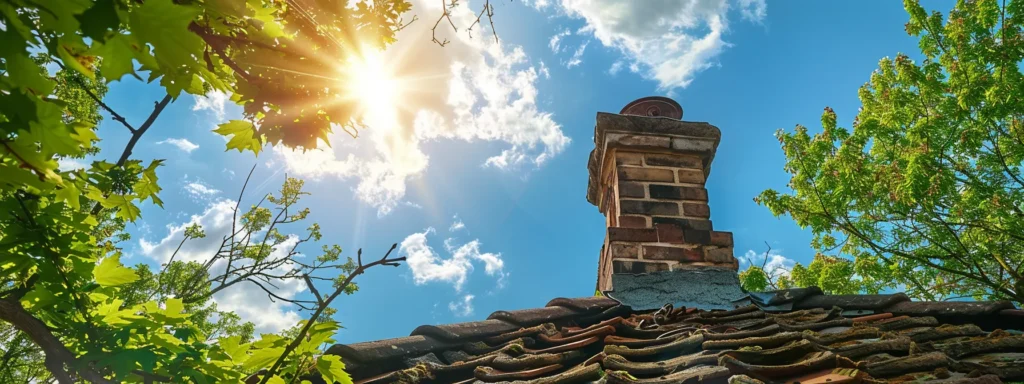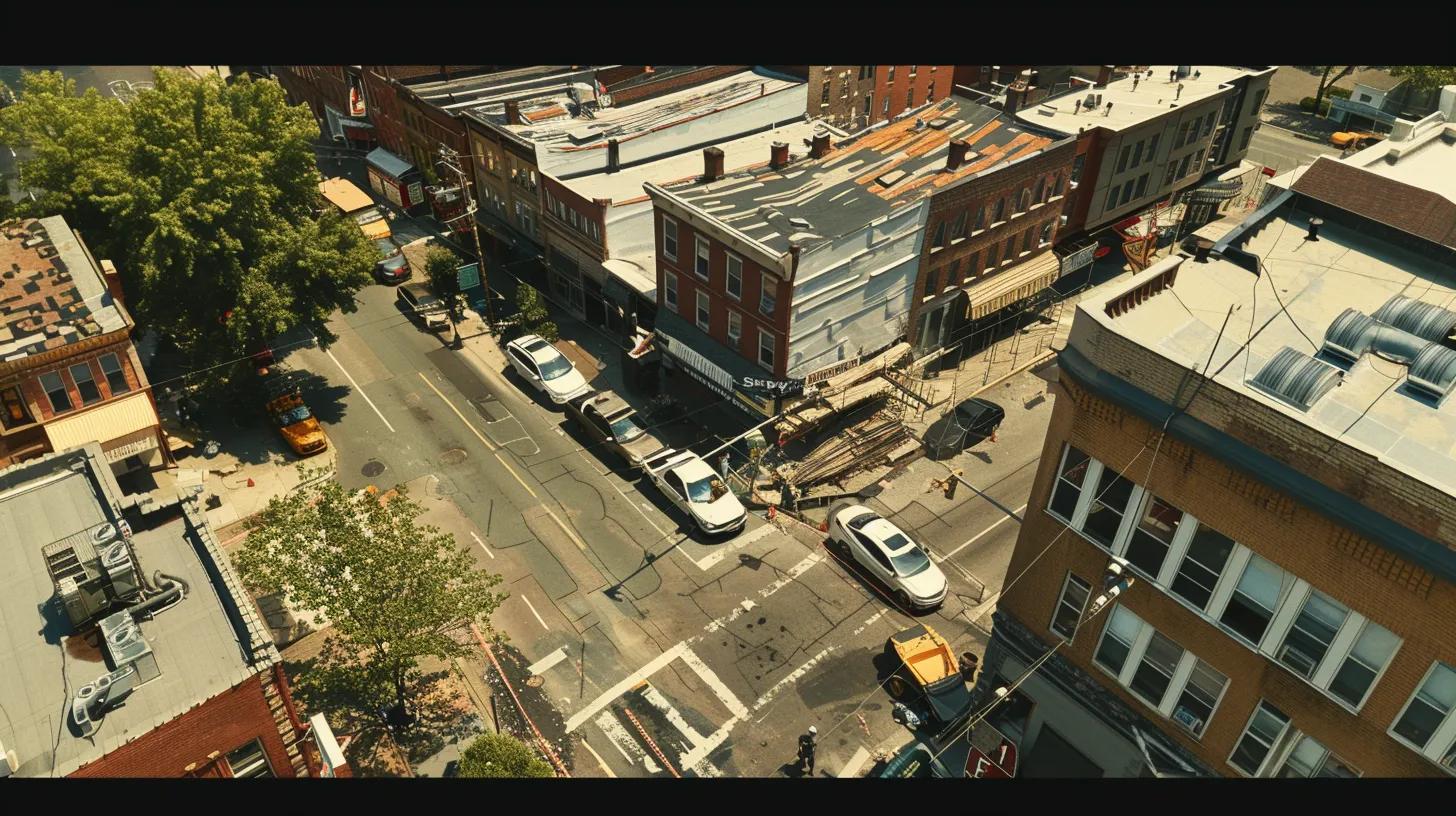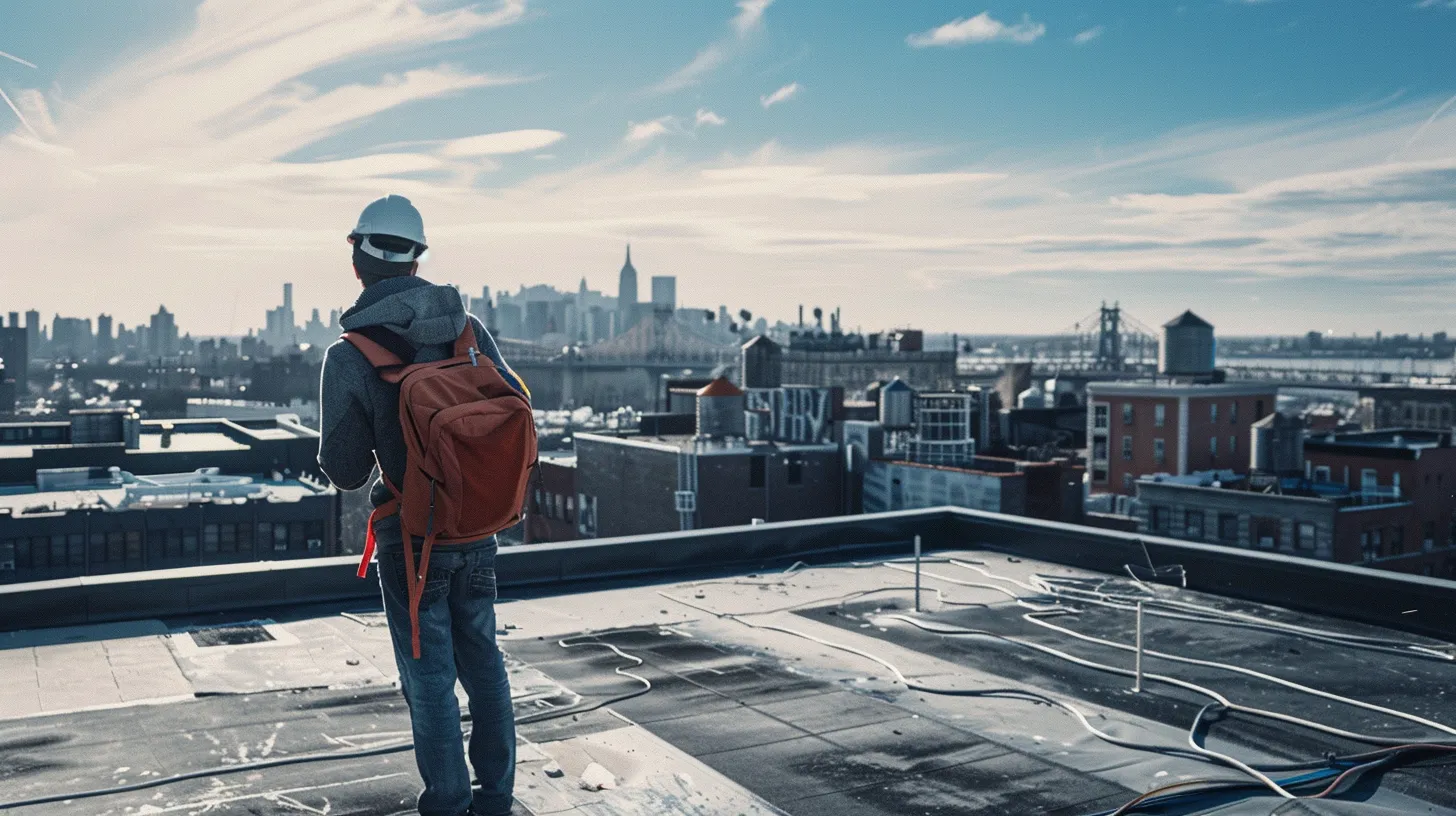Expert Chimney Inspections in New Jersey Explained
Chimney inspections are a critical yet often overlooked aspect of home maintenance. Many homeowners in New Jersey may not realize that regular evaluations can prevent costly repairs and enhance safety. This article will cover the types of chimney inspections conducted, the benefits of hiring local experts, and what to expect during a professional inspection. By understanding these components, readers can ensure their chimney remains in top condition, addressing any potential issues before they escalate. Engaging with this content provides valuable insights that can help prevent safety hazards and prolong the lifespan of the chimney.
Understanding Expert Chimney Inspections in New Jersey

Regular chimney inspections are vital for ensuring the safety and efficiency of a home’s ventilation system. Key indicators, such as the presence of carbon monoxide, creosote buildup, and issues with masonry, signal the need for expert attention. Understanding these factors helps homeowners in New Jersey, including The Bronx, prioritize their chimney maintenance and avoid potential hazards.
Importance of Regular Chimney Inspections
Regular chimney inspections play a crucial role in maintaining safety and efficiency for homeowners in New Jersey and the surrounding areas, including New York City and Staten Island. These inspections identify potential problems early, such as creosote buildup or structural issues that could lead to chimney fires. Without timely inspections, the risks associated with malfunctioning chimneys, like hazardous combustion gases, become significant threats to household safety.
Expert inspections enable a thorough assessment of vital components within the chimney structure. Professionals are trained to detect issues that might not be visible to the untrained eye, such as cracks in masonry or flue blockages that can contribute to dangerous situations. By prioritizing these inspections, homeowners can ensure that their ventilation systems remain functional, ultimately protecting their properties and loved ones from serious hazards.
Moreover, regular chimney inspections can lead to cost savings in the long run. By addressing minor issues proactively, homeowners can avoid more extensive repairs and emergency services due to severe problems. This preventative approach also contributes to the overall efficiency of the heating system, keeping homes warm during the colder months while minimizing the risk of chimney fires.
Key Indicators Your Chimney Needs Attention
One significant indicator that a chimney requires attention is visible creosote buildup, which can pose a severe hazard. Creosote, a byproduct of burning wood, accumulates in the flue and increases the risk of chimney fires. Homeowners should recognize that consistent chimney inspections by qualified chimney experts can identify this buildup before it becomes a major issue, helping to ensure safety and prevent costly repairs.
Another critical sign that a chimney is in need of service is the presence of unusual odors or smoke entering the home. These symptoms may indicate blockages within the duct, which could lead to dangerous gas emissions escaping into living spaces. Residents should prioritize timely chimney inspections whenever they detect these issues, allowing professionals to assess the situation and provide necessary repairs.
Additionally, exterior signs such as cracks, flaking, or crumbling bricks often signal underlying problems that require expert evaluation. Damage to the chimney’s structure not only compromises its function but may also contribute to temperature irregularities in the home. Homeowners who notice these issues should request service from experienced chimney experts, who can conduct thorough inspections to diagnose and address any concerns effectively.
Chimney inspections reveal the hidden truths of your home’s safety. Next, let’s explore the various types of inspections and what they can uncover for you.
Types of Chimney Inspections Conducted
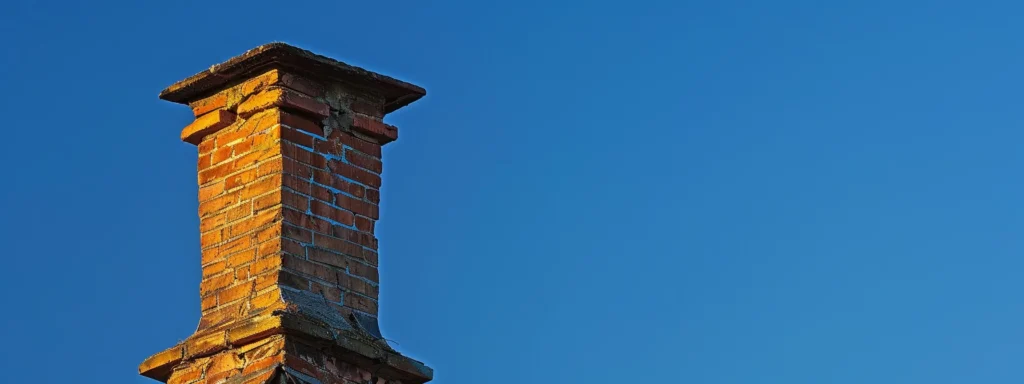
Chimney inspections are categorized into three levels, each tailored to specific needs. A Level 1 Inspection is standard for routine maintenance, ensuring the heating system functions safely. A Level 2 Inspection is crucial during real estate transactions, assessing the chimney‘s condition for potential buyers. Lastly, a Level 3 Inspection addresses extensive issues, offering comprehensive solutions for complex problems related to chimney repair. These inspections highlight the importance of quality customer service and adherence to safety policies.
Level 1 Inspection for Standard Use
A Level 1 Inspection for standard use is a vital component of chimney inspection services, designed to ensure that the chimney operates safely and efficiently. During this exam, chimney professionals conduct a visual check of the chimney structure, flue, and other accessible components, assessing for any immediate concerns. This routine maintenance evaluation aims to identify any minor issues before they escalate into more significant problems that could endanger the home or its occupants.
This inspection includes an assessment of the proper functioning of the chimney‘s duct services, which play a critical role in effective ventilation. By prioritizing a Level 1 Inspection, homeowners can facilitate optimal airflow and reduce the risk of hazardous gases accumulating within the living space. Addressing these essentials not only ensures cleanliness but also contributes significantly to the longevity and performance of the heating system.
Level 2 Inspection for Real Estate Transactions
A Level 2 Inspection for real estate transactions is critical for potential buyers and sellers in New Jersey. This type of inspection goes beyond the visual evaluation performed in a Level 1 Inspection, providing an in-depth assessment of the chimney’s condition. It often includes evaluating the chimney’s access points, including the attic and roof areas, to identify hidden issues that could impact the home’s safety and efficiency.
During this inspection, professionals examine the chimney structure, flue, and adjacent air duct services, ensuring that everything functions optimally. Inspections should assess potential problems, such as cracks or blockages that could hinder proper ventilation or lead to dangerous gas emissions from the furnace. The Level 2 Inspection helps buyers make informed decisions while providing sellers with essential insights to enhance property value.
Having a thorough Level 2 Inspection conducted before a sale can mitigate future liabilities for both parties. Buyers can be reassured regarding the property’s integrity, while sellers can address any identified issues, ensuring a smooth transaction process. This proactive approach not only promotes safety but also establishes trust among all parties involved, making it a key step in the real estate process in regions like Long Island and New Jersey.
Level 3 Inspection for Extensive Issues
A Level 3 Inspection is the most comprehensive evaluation of a chimney system typically required when extensive issues are suspected. This inspection involves a detailed analysis of various components, including the flue and surrounding structures, ensuring that potential dangers are thoroughly identified. Expert professionals utilize specialized equipment to detect problems that might remain hidden during lower-level inspections, thereby safeguarding homeowners against significant hazards.
During a Level 3 Inspection, the fireplace and chimney access areas are closely examined, including the roof and attic spaces. This thorough evaluation is crucial for detecting serious issues such as significant blockages, structural failures, or defects that may not be apparent from a standard visual assessment. By engaging qualified experts for this detailed review, homeowners can ensure their properties meet safety standards and function efficiently.
Homeowners who notice existing damages or have concerns about the functionality of their chimney should prioritize a Level 3 Inspection. The insights gained from this extensive evaluation enable property owners to make informed decisions regarding necessary repairs or upgrades. Addressing these issues proactively extends the life of the chimney and enhances the overall safety of the home environment.
After understanding the various types of chimney inspections, one must consider who performs them. Local experts bring knowledge and trust, ensuring each inspection is thorough and tailored to your needs.
Benefits of Hiring Local Chimney Inspection Experts

Local chimney inspection experts possess in-depth knowledge of New Jersey’s building codes, ensuring compliance and safety. Their familiarity with common issues, such as wood rot and debris accumulation, enhances their ability to address potential hazards. Furthermore, they offer quick access to emergency services, crucial for maintaining fire safety in homes. These insights set the foundation for understanding the benefits of engaging qualified professionals for chimney inspections.
Knowledge of Local Building Codes
Local chimney inspection experts possess a comprehensive understanding of New Jersey’s building codes, which is crucial for ensuring that all installations and repairs adhere to the necessary safety standards. These professionals are familiar with specific regulations and requirements that may vary depending on municipalities, making them indispensable for homeowners seeking reliable chimney services. Their expertise helps in avoiding costly fines and potential safety hazards associated with non-compliance.
By hiring qualified local experts, homeowners gain access to actionable insights regarding what is required to meet current building codes. For instance, these professionals can advise on the correct materials needed for linings, flues, and chimney caps based on local regulations, ensuring that installations are safe and up to code. This knowledge not only protects the homeowner but also enhances the overall functionality of the chimney system.
Furthermore, local experts often stay updated on any changes in legislation that can impact chimney safety and performance. Their commitment to professional development ensures that homeowners receive informed recommendations. This ongoing education ultimately contributes to better safety practices, reducing the likelihood of serious issues arising from outdated or incorrect installations that do not meet current building codes.
Familiarity With Common Issues in New Jersey
Local chimney inspection experts possess a deep understanding of the common issues that homeowners in New Jersey face. They are well-versed in regional challenges, such as high humidity and fluctuating temperatures, which can lead to chimney deterioration, mold growth, and other hazards. This knowledge allows them to identify and address problems that may otherwise go unnoticed, ensuring the safety and efficiency of the chimney system.
Familiarity with prevalent issues enables professionals to provide targeted solutions tailored to the specific needs of New Jersey homes. For instance, they may encounter frequent problems like creosote buildup due to various burning practices or structural damage from winter weather. By addressing these common concerns promptly, homeowners can avoid costly repairs and enhance the longevity of their chimneys.
Moreover, local experts can offer practical advice on maintenance practices unique to the area, helping residents uphold safety standards. This guidance often includes recommendations for regular cleaning schedules or materials that are best suited for New Jersey’s climate. Engaging with professionals who understand these localized factors contributes significantly to the overall functionality and safety of the chimney system.
Quick Access to Emergency Services
Hiring local chimney inspection experts provides homeowners in New Jersey with quick access to emergency services when immediate issues arise. This responsiveness is critical, especially when dealing with potential hazards like blockages or structural failures that could threaten the safety of the home. Local professionals have streamlined processes in place to address urgent situations efficiently, ensuring that homeowners receive the support they need without unnecessary delays.
These experts are typically familiar with the regional landscape and its common challenges, allowing them to quickly assess and mitigate risks. For instance, if a chimney fire occurs or carbon monoxide is detected, local professionals can arrive promptly to handle the emergency, minimizing damage and protecting residents. Their readiness to respond to urgent calls makes them an invaluable resource for maintaining safe household environments.
Furthermore, engaging with local chimney experts means that homeowners can establish a relationship with professionals who know their properties and specific needs. This familiarity allows for faster diagnosis of issues, as the experts can leverage their prior inspections and knowledge of the chimney to act swiftly. Having reliable local specialists on call for such emergencies can significantly enhance a family’s peace of mind, knowing that help is always within reach.
A local expert knows what to look for in a chimney. In the next section, discover what happens during a professional inspection that keeps your home safe.
What to Expect During a Professional Chimney Inspection
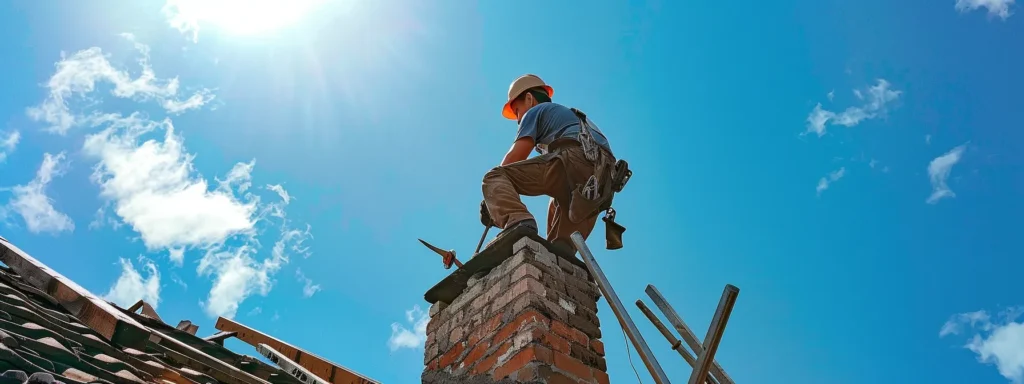
During a professional chimney inspection, initial safety precautions are paramount to protect both the inspector and the homeowner. Following this, the detailed inspection process involves a thorough examination of the chimney‘s structure and flue. Common tools such as cameras and brushes are utilized to identify potential hazards and ensure optimal safety and efficiency. This overview sets the stage for understanding the steps of a chimney inspection and the methods employed by professionals to maintain safety standards.
Initial Safety Precautions Taken
Before commencing a professional chimney inspection, experts prioritize safety measures to ensure the well-being of both the inspector and the homeowner. They assess the surrounding area for potential hazards, such as combustible materials or structural concerns that may impact the inspection process. This proactive approach minimizes risks associated with chimney inspections and prepares for a comprehensive evaluation.
Inspectors often utilize personal protective equipment (PPE) to safeguard against soot, dust, and other debris that may be present within the chimney. This gear typically includes gloves, goggles, and masks, which help maintain a safe environment during the inspection. By taking these precautions, professionals are equipped to conduct a thorough examination while ensuring their safety and that of the home’s occupants.
Furthermore, expert teams communicate with homeowners about important safety protocols prior to beginning the inspection. This dialogue includes discussing potential concerns, such as the use of heating appliances, which may affect the chimney’s function. By establishing clear communication, chimney professionals foster a cooperative atmosphere, enhancing the inspection‘s effectiveness and aligning with the homeowner’s expectations regarding safety and performance.
Detailed Inspection Process Explained
During a professional chimney inspection, the process begins with a comprehensive visual examination of the chimney‘s exterior and structure. Inspectors look for visible signs of damage, such as cracks or deteriorating mortar, which could indicate underlying problems that might compromise the chimney’s function. These early observations are critical for determining whether further assessment is needed.
Following the initial assessment, the inspection progresses to a thorough evaluation of the flue and internal components using specialized tools like cameras and brushes. These instruments allow professionals to identify any blockages caused by creosote or debris, as well as any structural failures that could pose safety risks. This detailed analysis is essential for ensuring that the chimney operates safely and efficiently, safeguarding the home from potential hazards.
Lastly, inspectors conduct testing to check for proper airflow and assess the overall condition of the chimney‘s system. They ensure that all components, including the flue and air ducts, function correctly to facilitate effective ventilation. By completing a thorough inspection process, professionals provide homeowners with valuable insights, enabling them to make informed decisions regarding maintenance, repairs, or upgrades necessary to enhance their chimney’s safety and performance.
Common Tools Used by Chimney Inspectors
Chimney inspectors utilize a variety of specialized tools to ensure a thorough evaluation of the chimney system. One common tool is the camera, which allows inspectors to capture clear images of the flue’s interior. This technology helps identify blockages, creosote buildup, and structural damages that might be invisible to the naked eye, assisting in providing detailed assessments and necessary recommendations for repairs.
Another essential tool for chimney inspections is the chimney brush. This tool plays a critical role in cleaning the flue and removing accumulated creosote and debris that can create hazardous conditions. Regular use of chimney brushes during inspections helps enhance the system’s efficiency and safety, ensuring air can flow freely and reducing the risk of chimney fires.
Furthermore, inspectors often employ handheld gauges to measure airflow and check for safe ventilation. These instruments are vital for ensuring that the chimney operates optimally, creating a safe environment for households. By utilizing these tools in their inspections, professionals can accurately assess the condition of a chimney and instill confidence in homeowners regarding the safety of their heating systems.
Curiosity often stirs questions about chimney care. Here, common concerns and answers will guide homeowners through the essentials of chimney inspections.
Frequently Asked Questions About Chimney Inspections

Understanding the nuances of chimney inspections is essential for homeowners in New Jersey. This section addresses key inquiries, such as the frequency of inspections, typical costs associated with them, and the duration of the inspection process. Each response aims to provide practical insights, helping homeowners make informed decisions about their chimney maintenance and safety.
How Often Should Inspections Be Performed?
Homeowners in New Jersey are typically advised to schedule chimney inspections at least once a year. This proactive maintenance approach helps identify any potential issues such as creosote buildup or structural damage that could compromise safety and efficiency. Regular check-ups ensure that the chimney system operates correctly, minimizing the risks associated with fire hazards and harmful gas emissions.
For those who use their fireplaces frequently during the colder months, more frequent inspections may be necessary, potentially every six months. Increased usage can lead to faster accumulation of soot and creosote, elevating the risk of chimney fires. Homeowners practicing regular inspections can address minor concerns promptly, preventing more significant issues and costly repairs down the line.
In addition to annual or semi-annual inspections, homeowners should also consider scheduling an evaluation after severe weather events or any signs of distress, such as unusual odors or excessive smoke. These occurrences may indicate urgent problems requiring immediate expert attention. By being attentive to their chimneys and seeking professional assessments, homeowners can uphold safety and ensure the longevity of their chimney systems.
What Does a Chimney Inspection Cost?
The cost of a chimney inspection in New Jersey typically ranges between $100 and $300, depending on factors such as the type of inspection and the complexity of the chimney system. For a standard Level 1 Inspection, the fee tends to be on the lower end of this scale, while a more thorough Level 2 Inspection, often required during real estate transactions, usually incurs higher costs due to the detailed evaluation involved.
Homeowners should consider that investing in regular inspections not only ensures the safety and efficiency of their chimney systems but can also prevent more significant expenses down the line. Identifying issues early through professional assessments can save clients from costly repairs that may arise from negligence. This proactive approach enhances the longevity of the chimney and contributes positively to home maintenance budgets.
It is advisable for homeowners to consult with local chimney inspection experts for precise cost estimates tailored to their specific needs. Engaging professionals with knowledge of regional standards and common issues ensures that clients receive accurate evaluations and fair pricing. By investing in quality chimney inspections, homeowners gain peace of mind and safeguard their properties against potential hazards.
How Long Does an Inspection Take?
The duration of a professional chimney inspection can vary based on several factors, including the type and condition of the chimney system. Generally, a standard Level 1 Inspection may take around 30 minutes to an hour, as it involves a thorough visual examination of accessible components. In contrast, a more comprehensive Level 2 Inspection may require a longer duration, often between one to two hours, due to its detailed assessment including access to the attic and roof areas.
During the inspection, professionals focus on various factors that influence the timeline, such as the complexity of the chimney structure and whether additional issues are identified that necessitate further evaluation. For instance, if significant problems like blockages or structural damage are discovered, the inspector may spend extra time addressing these concerns, which could extend the overall time needed for the inspection process. Homeowners should consider these variables when scheduling inspections to allow ample time for a comprehensive assessment.
Ultimately, investing time in a thorough chimney inspection can prevent future hazards and costly repairs, highlighting its importance. Homeowners in New Jersey are encouraged to prioritize these inspections regularly, ensuring their chimney systems function properly and safely. By engaging local experts who understand the unique needs of their area, homeowners can receive valuable insights during the inspection, solidifying their commitment to safety and home maintenance.
The time has come to take action. Scheduling your expert chimney inspection in New Jersey ensures safety and peace of mind—one call can make all the difference.
Scheduling Your Expert Chimney Inspection in New Jersey
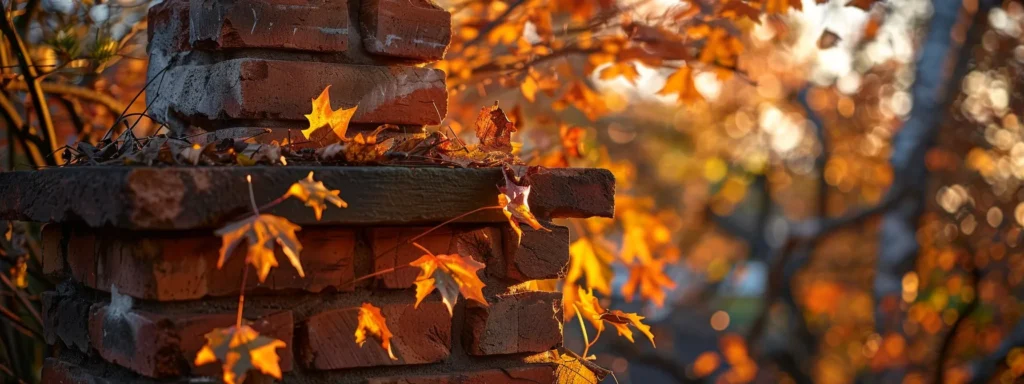
Booking an expert chimney inspection in New Jersey involves straightforward steps to ensure proper service. Homeowners will learn how to choose the right inspection professional for their specific needs and what preparations are necessary for a successful appointment. This section provides essential insights to help streamline the process and enhance the efficiency of chimney inspections.
Steps to Book Your Service Online
To begin the process of booking an expert chimney inspection in New Jersey, homeowners should first visit the contractor’s website. This online platform typically provides essential information about the services offered, including details on various types of inspections such as Level 1, Level 2, and Level 3. Understanding these options allows homeowners to select the appropriate service that matches their needs.
Next, homeowners should look for an online scheduling tool or contact form clearly provided on the website. By filling out the required fields, individuals can specify their preferred date and time for the inspection, as well as any additional concerns they might want the professionals to address. This step ensures that the chimney inspection is tailored to their specific situation, enhancing overall service quality.
Lastly, confirmation of the appointment typically follows, often via email or phone. Homeowners should review this confirmation carefully to ensure that all details are correct. If any adjustments or further questions arise before the inspection, reaching out to the chimney inspection team promptly can provide clarity and ensure that everything is set for the professional evaluation. Clear communication with the experts contributes to a seamless and efficient inspection process.
Choosing the Right Inspection Expert for Your Needs
When selecting a chimney inspection expert in New Jersey, it is essential to prioritize qualifications and experience. Homeowners should look for professionals who are certified and insured, as this demonstrates a commitment to safety and quality standards. Experience in local conditions and building codes ensures that the expert can address region-specific issues effectively, providing peace of mind regarding chimney safety.
Reading reviews and testimonials from previous clients can also guide homeowners in making an informed decision. Feedback from local residents sheds light on the reliability and quality of service provided by the expert, helping to establish trust before scheduling the inspection. Trial by peers creates an opportunity to understand the level of expertise and customer service offered, making it easier to choose a trustworthy inspection professional.
Furthermore, homeowners should inquire about the range of services offered by the inspection expert. A comprehensive service portfolio that includes Level 1, Level 2, and Level 3 inspections indicates a professional who can cater to various needs and situations. By confirming that the chosen expert can provide tailored solutions, homeowners can ensure that their chimney system remains safe and efficient after each inspection.
What to Prepare for Your Appointment
Homeowners in New Jersey should prepare their property for a chimney inspection by ensuring clear access to the chimney and surrounding areas. This can involve moving furniture, decorations, or any obstructions that may hinder inspectors from performing a thorough evaluation. Easy accessibility allows professionals to conduct their work efficiently, ensuring nothing goes unnoticed during the inspection process.
Additionally, it is helpful for homeowners to gather relevant documentation regarding the chimney system, such as previous inspection reports or maintenance records. This information can provide inspectors with valuable insights into the chimney’s history, allowing for a more accurate assessment. By having this documentation ready, homeowners can facilitate a smoother inspection, enabling experts to address any existing concerns more effectively.
Before the appointment, homeowners should also communicate any specific issues or symptoms noted, such as unusual odors or visible damage. Sharing these concerns helps the inspection team to focus their evaluation on potential problem areas, ensuring that no critical issues are overlooked. Being proactive in this regard enhances the overall effectiveness of the chimney inspection, ultimately contributing to the safety and efficiency of the home’s ventilation system.
Conclusion
Expert chimney inspections are crucial for ensuring the safety and efficiency of homes in New Jersey. Regular assessments help identify potential hazards, such as creosote buildup and structural issues, that could lead to significant safety risks. Engaging qualified professionals not only complies with local building codes but also enhances the overall functionality of the chimney system. Homeowners are encouraged to prioritize these inspections for peace of mind and to protect their properties from costly repairs and dangers.

